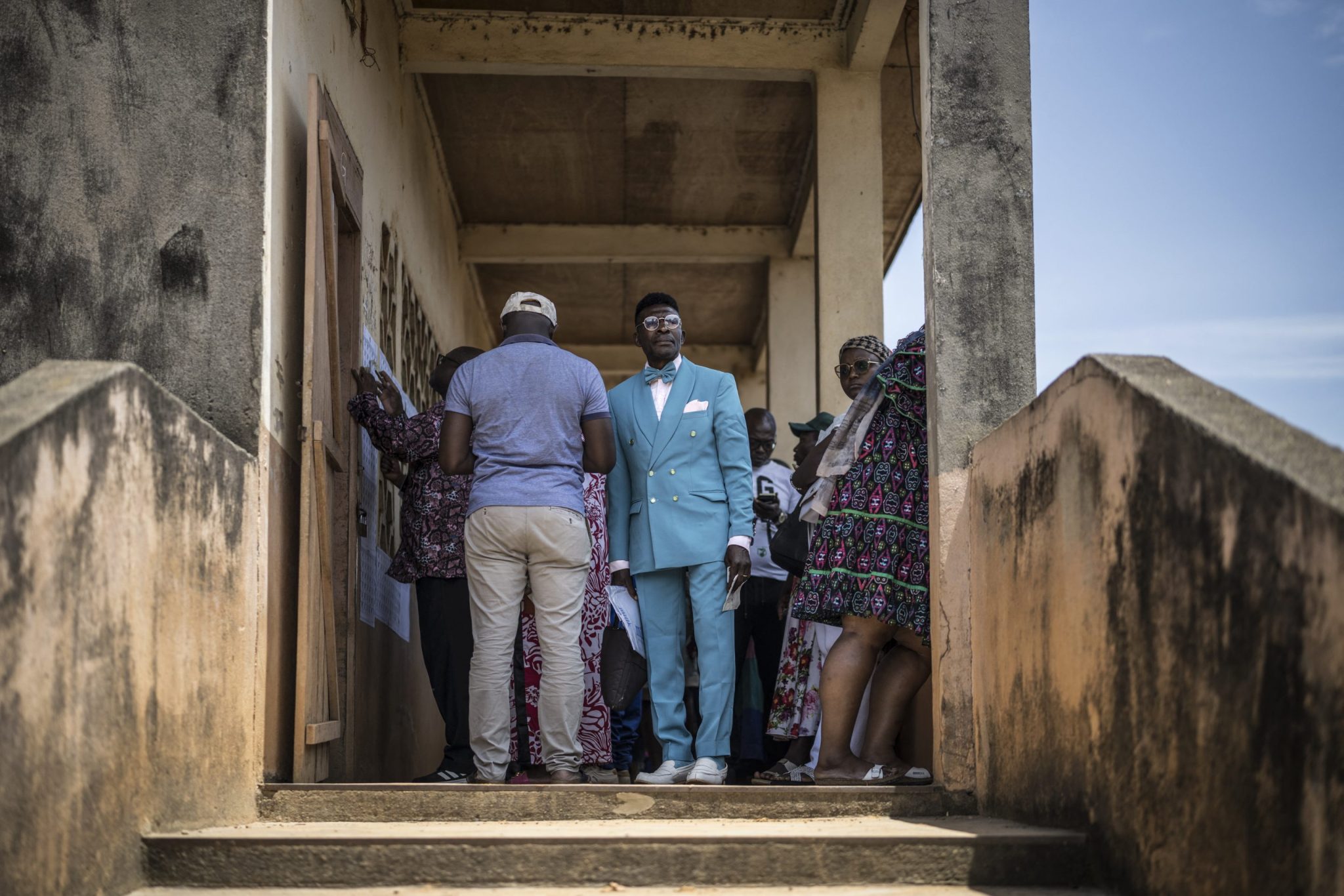
Elvis Ngobo tried out at four different vocational schools in the country Cameroon But you can’t do that. Out of frustration, the 34-year-old turned to selling food at a market in Yaounde, the country’s seat of power.
Ngobo blames his problems on what he calls a corrupt education system that favors the children of elites. As the Central African country prepares for the presidential elections scheduled for Sunday, he said he would not go to vote.
He described the results as an inevitable outcome for 92-year-old Paul Biya, the world’s oldest president, who has ruled for Ngobo’s entire life.
“He is too old to govern, and it is boring to know him only as president,” Ngobo told the Associated Press.
This sentiment is shared by millions of the country’s young people, whose average age is 18, and this is perhaps the most dramatic example of the tension between Africa’s youth and many of the continent’s aging leaders.
Crisis after crisis
Pia seeks Eighth term in office In a one-round presidential election in which 8.2 million Cameroonians were registered to vote.
He became president for the first time in 1982 after the resignation of his predecessor, Ahmadou Ahidjo, and has ruled since then. He was declared the winner of seven subsequent elections. Cameroon has had only two leaders since its independence in 1960.
“In the face of an increasingly difficult international environment, the challenges facing us have become more urgent,” Biya said in announcing another round. “In such a situation, I cannot shirk my mission.” He did not give details.
The country’s youth are hungry for jobs. According to World Bank data, the unemployment rate is 3.5%, but 57% of the labor force between the ages of 18 and 35 work in informal jobs.
Although Cameroon is an oil-producing country with modest economic growth, young people say the benefits have not passed beyond the elites.
The country is also facing escalating security crises. In the western region, a separatist battle has long been fought mainly between English-speaking citizens who claim to be marginalized by the French-speaking majority. And in the north, Boko Haram The insurgency extends from neighboring Nigeria, where armed groups routinely attack border towns.
Pia in this election Challenged by nine opposition Candidates, including some former allies and appointees. They include Issa Chiroma Bakare, who until recently served as Minister of Labour, and Bello Buba Maigari, who was Minister of Tourism.
Another candidate who ran against Biya in 2018 and came in second place with 14% of the vote was Maurice Kamto. He is prohibited from running in these elections. The electoral commission said it excluded Kamto because his party was also sponsoring another candidate, which Kamto’s lawyers rejected. Kamto was arrested after the last election for demanding justice.
“The main opposition candidates are former ministers in Paul Biya’s government who just resigned a few weeks before the presidential election,” Wilson Tamvu, a law professor at Dschang University, told the AP. “Young people see a double standard in this kind of sudden shift in behavior, pointing to the grim reality that ‘underbelly politics’ is the norm.”
He referred to the “opposition” tactic of those seeking to dilute support for genuine opposition candidates in exchange for the president’s endorsement.
“President until he dies”
Analysts say Cameroonian elites are unwilling to disrupt the political system after decades of Biya’s rule.
“There’s no doubt that (Biya) is widely unpopular in the country, but he certainly has the support of a lot of elites and traditional rulers through corruption and the money network,” said Nate Powell, Africa analyst at Oxford Analytica. “That kind of plays a big role in making sure he wins.”
The government has rejected such accusations in the past.
The ruling party, the Cameroon People’s Democratic Movement, controls the legislature with 94 seats out of 100 in the Senate and 152 out of 180 in the National Assembly.
Payment health He has routinely been the subject of speculation because he spends most of his time in Europe, leaving governance to key party officials and family members.
“Part of it is that he wants to remain president until he dies, but part of it is also to do with the entourage and the party in power,” Powell said. “The party wants to keep him there because he is a stabilizing force, because as long as he is alive, it keeps everything together.”
At the University of Yaoundé I, Manong Wilfried, a 27-year-old geosciences student, sat near the stairs, looking pensive. He said he would vote in the elections, but none of the candidates convinced him, and he denounced Biya’s participation.
Wilfred cited patriotism as his only motivation for voting.
“For the good of the country, he must hand over leadership of the country to someone else who can better understand and solve the problems faced by young people,” he said of Biya.
Like many young people, Ngobo has lost faith in an electoral system that he believes is designed to keep Biya in power.
He said: “Change of power in this country can come through other means, but not through the ballot boxes.”
___
Adetayo reported from Lagos, Nigeria.
https://fortune.com/img-assets/wp-content/uploads/2025/10/GettyImages-2240188212-e1760287034218.jpg?resize=1200,600
Source link